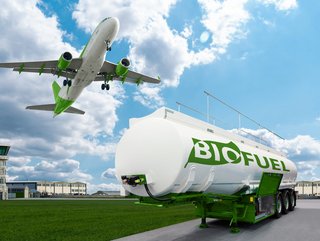How synthetic aviation fuels can help save the planet

While the transition to greener power is being addressed for some modes of transport through the use of batteries and ammonia, the aviation industry is still recognised as a major user of fossil fuels and suffers from severe challenges with respect to decarbonisation. It’s an industry that requires a renewed focus as well as serving as a barometer for the impact synthetic fuels can have on the UK’s move to meet its net zero goals.
The necessity for a fuel solution is emerging as a key priority, as scientists and policymakers have highlighted the huge challenges that remain around the availability, costs and scalability of creating viable alternative fuel solutions for the aviation industry.
According to research from the Royal Society, the UK would have to devote half its farmland or more than double its total renewable electricity supply to make enough aviation fuel to meet its ambitions for “jet zero”, or net zero flying, and balance out emissions by 2050.
Why bio-fuels can't save the aviation industry
The most talked about innovation in aviation’s journey to net zero has, to date, been bio-jet fuel. An alternative to fossil fuels, bio-jet fuels have been created for aviation and are derived from vegetable oils that are chemically processed to produce a broad range of products like renewable diesel fuels. These require further refining to reach the substance that is suitable for use as bio-jet fuel.
Bio-jet fuel is the most recognised and most researched solution for the aviation industry. In 2021, the US Department of Energy announced $64.7 million in funding for projects focused on producing cost-effective, low-carbon biofuels. But there are better alternatives.
It sounds promising, but bio-jet fuels hold compatibility issues with older aircraft fleets, which require it to be blended with fossil fuels to function effectively. Current projections also show that forecasted production levels for 2023-25 will amount to little more than 4 per cent of today’s aviation energy demand.
It’s clear more needs to be done. Aside from production levels falling worryingly low, biofuels require significant amounts of land, water, and other biological resources for its creation, which can lead to environmental degradation and competition with other industries, such as food production, for resources.
What are the alternatives?
There are other alternative sources of energy like hydrogen or ammonia, but there is also a ‘next generation’ contender. Synthetic fuels are one of the most promising solutions to help achieve the UK’s net zero flying goals.
This next generation of fuels takes ground-breaking biochemistry and applies transformational engineering solutions to bring it to market. C3 Biotech's synthetic fuels differ from biofuels as they are manufactured from agricultural and biomass waste and are not limited by land or water resources. Additionally, the fuel has high energy density, making it a practical alternative to traditional fossil fuels. Synthetic fuels, like C3 Biotech’s, can be tailored to meet specific performance requirements, making it suitable for use in various applications, including industries like aviation, space, industrials and fast-moving consumer goods (FMCG).
The performance potential of C3 Biotech’s synthetic fuels was demonstrated in 2022, when the Royal Air Force (RAF) successfully powered a drone using C3 Biotech's synthetic kerosene. Synthetic kerosene is entirely free from fossil fuels and is made by mixing raw materials with high sugar levels, such as food waste, with bacteria. This creates an oil substance that is converted into aviation fuel using chemicals and heat. The process does not require large-scale infrastructure and can be made anywhere, making it an attractive option for military deployments around the world.
Synthetic fuels are the future of green energy and offer a sustainable and versatile alternative to fossil fuels. The science is established, and now needs an engineering solution. That’s why C3 Biotech has successfully created a world class team of engineers to create pathways for our fuel to be easily implemented in everyday use.
Scalability is another critical aspect of sustainable fuel production, and synthetic fuels have a significant advantage here. The drop-in technology allows the fuel to be easily integrated into existing infrastructure without requiring significant modifications. Additionally, it can be produced on-site, reducing transportation costs and improving supply chain efficiency.
What’s next?
The aviation industry is facing a significant challenge in reducing greenhouse gas emissions, with traditional biofuels offering limited scalability and compatibility with all aircraft fleets. Synthetic fuels produced through biological engineering offer a promising solution to this problem, with high energy density, customisable performance, and compatibility with existing infrastructure. C3 Biotech is a world leading player in this field, producing sustainable and versatile fuels that can power everything from drones to airplanes, without requiring large-scale infrastructure or competing with food production.
By leveraging the power of biological engineering, the nation can accelerate the transition to a greener future and mitigate the effects of climate change.






